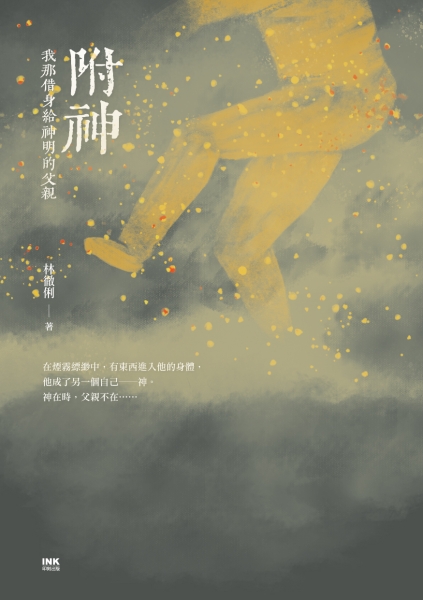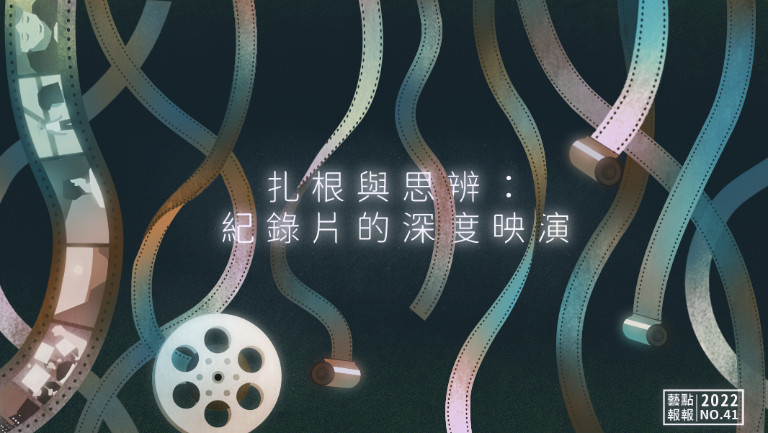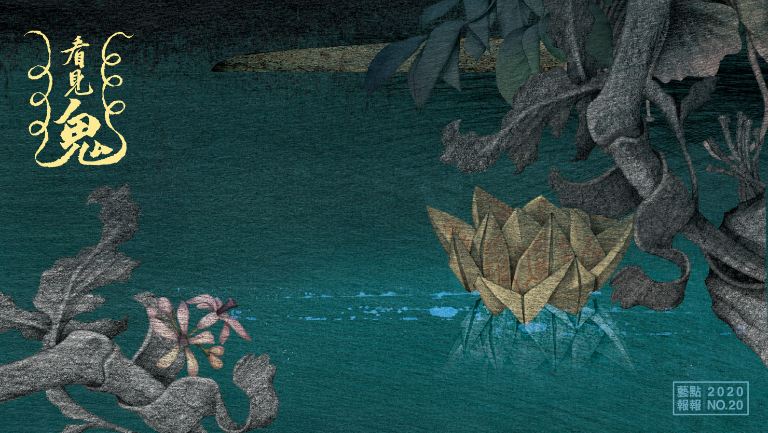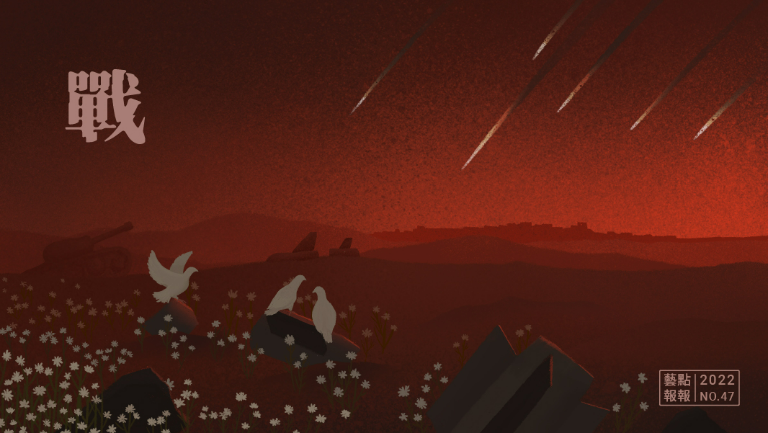What is faith? How closely can place, people, and religion be interconnected? In Cultural Anthropology[1], Conrad Phillip Kottak states that religion transcends experience and cannot be explained in ordinary words, and can only be accepted on a foundation of faith. These beliefs are based on the supernatural. Gods, ghosts, souls, and the like exist outside our material world, and people believe in their intangible powers. In Faith and Culture[2], Yih-Yuan Li writes that some people think gods and spirits are loving, while others think they are terrifying and unreliable. He looked at the differences in people's attitudes toward faith from a psychological perspective and found that religious beliefs have to do with people's education and experiences. He also explains how religious beliefs deeply influence human social systems.
Kuan-Hsiang Liu combined his own experience with the stories of Hindu deity Shiva, using the various personalities and aspects of Shiva to present a period of his life. In mythology, Shiva mostly appears as male, but it is also said that his gender is fluid due to his manifold aspects. The project's resulting piece, SH0VA, was performed by three dancers. Looking back on it, the display of biologically-male and -female bodies reflected Shiva's enigmatic and undetermined appearance, thick-bodied and slender, bald and long-haired, and so forth. In addition to external images, the performance is more than a one-sided narrative presentation—it also includes Kuan-Hsiang Liu's narration and incomprehensible yells interspersed with contemporary music, creating a sense of intrigue between fiction and reality.
What happens if, in addition to a symbolic existence, gods actually enter one's physical body? Che-Li Lin applied for a publishing grant in the Literature category for her book Spirit Medium (附神). The book mainly tells the story of her father who has the special gifts needed to be a jitong (乩童; Chinese folk spirit medium). She writes her perspective of different moments of her father's experience as a jitong and how she witnessed different facets of life through these experiences. In an exclusive interview by Yun-Yan Wang, Che-Li Lin said: "When he is mortal, my father helps people just like when he is possessed by a god. The only difference is, when he is possessed by a god, people will try to thank the god, perhaps by burning more paper money, bringing offerings to pray with, or donating money to the gods on their birthdays. When he is mortal, however, the people he helps seem to take him for granted, and things sometimes even devolve into conflicts and discord over whether he actually helped or not." [3] The novel describes changes undergone by the jitong himself and the surrounding environment.
Elvis A-Liang Lu's A Holy Family also recounts the coexistence of humans and gods. The original plan was to record his brother, who can be possessed, but after focusing on his family, it turned into a documentary about "home". This film presents the twisted-yet-closely-intertwined fates of different members of the family while adding feedback from believers, telling the story of everything that happened in this family regarding faith from a sympathetic yet cruel perspective.
In his exclusive interview with BIOS Monthly, Elvis A-Liang Lu said, "... every night, people would gather at the altar on the top floor of my home to ask questions. Groups of adults gathered around my brother to pray for good health and prosperous careers. He had witnessed miracles, but more often than not, it was just a bunch of gamblers who wanted to him to predict lottery numbers or interpret their divinatory poems." [4] His brother's psychic ability and his father's habits gave Elvis A-Liang Lu a different outlook on family and religion. In Place[5], Tim Cresswell believes that the private space of "home" contains a series of memories and conceptions of its own, and that from this space, we begin to develop a better understanding of other external spaces. However, "home" is not always an ideal space, and can sometimes be stifling. Nonetheless, the experience of existing in a place remains a way for us to understand the world.
What happens when the public still believes that faith and people are inseparable, and that people can be liberated by faith? Che-Li Lin and Elvis A-Liang Lu show us the stories of their families from their own perspective, even raising questions about gods and spirits. Their works give us a better understanding of the more unknown aspects of traditional faith, and provide reflections on something people usually find solace in. As Feng-Yi Chu stated in an article describing the outcomes of his project titled "The Endless Pursuit of Local Traditions to Universal Spirituality: the Significance of Religion and Mysticism in the Development of Taiwan's Contemporary Art", which explores mysticism's place in Taiwan's contemporary art: "... In everyday life, we always practice poem divination to ask about the 'future'... why do people always ask gods about the future, but not the past?" [6] Regardless of restrictions such as race and religion, questioning these habits of ordinary people is also a re-examination of faith. When something becomes a habit, we don't question its significance, but once someone challenges our assumptions, it becomes an interesting debate.
Religious belief has real attachments in different aspects, but is it worth becoming the only source of spiritual sustenance? Or is it just a big gamble? Whether you are a believer or not, I would like to close this article by wishing all readers good health and happiness.
Notes
Notes
[1] Kottak, Conrad Phillip (2014). Cultural Anthropology: Appreciating Cultural Diversity (Hsu, Yu-Tsun, Trans.). Taipei Chuliu Books.
[3] Wang, Yun-Yan. "As the daughter of a spirit medium, she wants to 'change her father's fortune' through writing—Exclusive interview with Che-Li Lin, Spirit Medium: My Father Who Lends His Body to the God." OKAPI Reading Life Journal. URL: https://okapi.books.com.tw/article/14888
[4] Bios Monthly. "Gambler Father, Religious Mother, Psychic Brother, and I, the Director—Exclusive interview with Elvis A-Liang Lu, A Holy Family". Bios Monthly. URL: https://www.biosmonthly.com/article/11158
[5] Cresswell, Tim (2006). Place: A Short Introduction (Wang, Chih-Hong & Hsu, Tai-Ling, Trans.). New Taipei City: Socio Publishing.
[6] Chu, Feng-Yi. "Technical Questions about the Apparition of Ghosts and Gods in Taiwanese Contemporary Art". Islands. URL: https://www.heath.tw/nml-article/concerning-technologies-of-reappearing-mystical-experience-in-taiwanese-contemporary-art/
*Translator: Linguitronics







